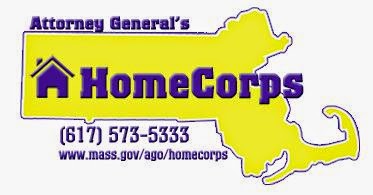If anything positive could come out of the tragic situation involving Terri Schiavo, it is that many more Americans are pursuing various documents such as "living wills", health care proxies, trust, and wills. The following are frequently asked questions about obtaining a health care proxy in Massachusetts.
WHAT IS A HEALTH CARE PROXY?
A health care proxy document is a written instruction by a person, referred to as the Principal, who appoints a health care Agent, or Proxy Agent, to make medical or health decisions when the Principal is incapacitated and unable to make or communicate such decisions. Under a durable power of attorney, your Agent is authorized to make business and financial decisions for you in accordance with your wishes. This person cannot, however, make decisions about your health or health care. You must make a separate authorization in a health care proxy document. Your health care Agent could be the same person you have named as your Agent in your durable power of attorney document, or, you could name a different person, based on different factors that do not involve financial matters.
Health Care Proxy forms are available at the PCOA.
WHAT IS A LIVING WILL?
How is it different than a health care proxy?
In a "living will" document, a person spells out wishes for specific situations. However, "living will" is not legally binding in Massachusetts, and is not generally recommended because they may not cover specific situations that may occur.WHO SHOULD HAVE A HEALTH CARE PROXY?
Anyone over the age of 18 should have a health care proxy as tragedy can strike at any age.HOW DO I GET A HEALTH CARE PROXY?
A health care proxy document must be in writing and must be witnessed by two people. Once signed, it is important to give a copy to every doctor who treats you, your Proxy agent, keep a copy with your medical records, in your "yellow dot" package if you have a yellow dot, and keep a copy with you. You might also wish give a copy to all immediate family members, or other people medical staff might contact. You can obtain copies of a health care proxy document at the Council on Aging, or also at the following website from the Massachusetts Medical Society. www.healthcareproxy.orgWHAT HAPPENS IF I DON'T HAVE A HEALTH CARE PROXY?
If you become unable to communicate, it may be necessary for family members, caregivers, or friends to file a petition with the Probate Court in order to have a legal guardian appointed to make medical decisions.WHAT HAPPENS IF I DECIDE TO CHANGE MY AGENT?
A health care proxy can be revoked at any time. You would simply fill out a new health care proxy document and redistribute the updated form.Remember, if you appoint a health care proxy, the Agent will only be able to act on your behalf if and when you are unable to communicate your wishes. It is very important to discuss your wishes and beliefs with your Agent so that if needed, he or she can make medical decisions based on your wishes.









